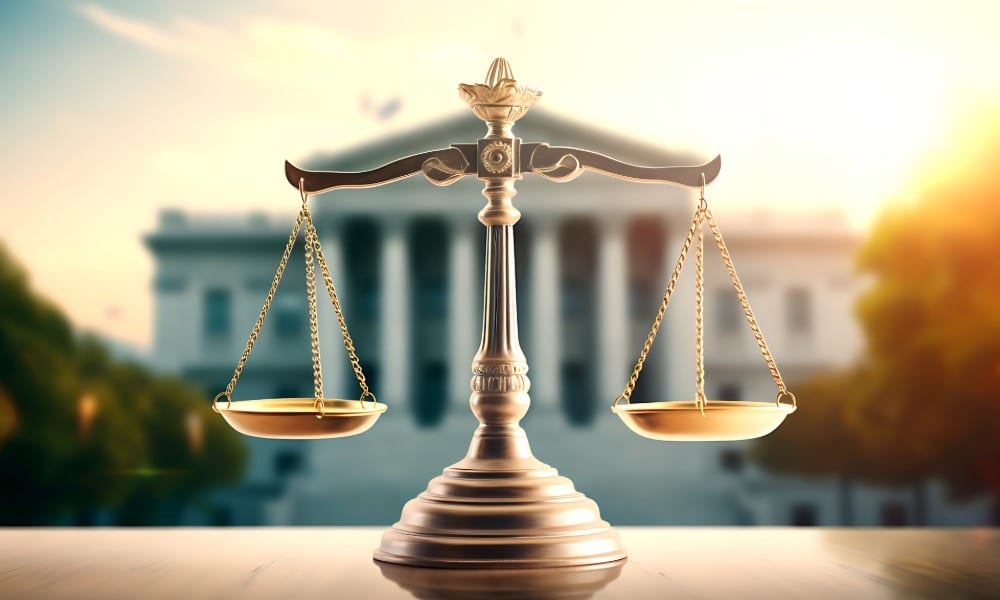For a law passed in 1972, Title IX has been in the news a lot in recent years.
As sexual assault and other sex crimes have gained more attention in the media, Title IX laws have increasingly been expanded and discussed (under both the Obama and Trump administrations).
These laws were originally designed to protect children at our schools from sex-based discrimination but they have become synonymous with the sexual assault of children within the education system. They apply to all educational institutions that receive federal funding and this covers the vast majority of schools, colleges and universities in the country.
In recent years, we have seen how widespread the problem of sexual assault on campus is. According to a 2020 report by the Association of American Universities, 13 percent of graduate and undergraduate students experience rape or sexual assault through physical force, violence or incapacitation. That’s more than one in eight students.
While sexual assault is rife amongst female students, male students are far from immune. Male college-aged students (18-24) are 78 percent more likely than non-students of the same age to be a victim of rape or sexual assault.
Furthermore, amongst female students aged 18-24, only 20 percent report the assault to law enforcement, according to the Department of Justice.
Call 207-571-8146 or contact us online to schedule a consult with one of our highly skilled criminal defense & OUI lawyers, serving Southern Maine, today.
Table of Contents
What is sexual assault?
Sexual assault is a form of sexual violence where an individual subjects a victim to unwanted sexual contact.
It encompasses a broad range of undesirable behavior from rape to unwanted touching or the threat of using force during a sexual act.
Under Maine law, the victim does not need to resist and, even if there are no physical threats made to the victim, it may be classified as sexual assault. Sexual contact based on any type of threat—whether physical or otherwise—is classified as sexual assault.
Sexual assault within relationships
The laws in Maine also protect individuals against sexual assault in relationships, sometimes referred to as “partner rape”, “marital rape” or “domestic violence”.
Unfortunately, this is often not reported because victims often feel that the justice system cannot protect them. Some individuals are not even aware that they have legal options available if they are assaulted by their partners.
How does sexual assault impact college students?
Sexual assault—whether reported to the authorities or not—may have a lasting impact on the victim.
Low self-esteem, depression, anxiety, post-traumatic stress disorder (PTSD), sleep disturbance and suicidal thoughts are just some of the typical after-effects of sexual assault.
These effects can, in turn, impact the ability to maintain personal relationships and may affect the victim’s future employment and/or social life.
Call 207-571-8146 or contact us online to schedule a consult with one of our highly skilled criminal defense & OUI lawyers, serving Southern Maine, today.
What can be done to prevent sexual assaults on campus?
By law, all educational institutions that receive federal funding in Maine must have policies and procedures in place that help to prevent sexual assault and provide a means for victims to report incidents under Title IX.
The Clery Act also dictates that schools must provide crime statistics and safety policies to the public.
Yet many institutions still do not accurately disclose rape statistics nor indicate how these matters are resolved.
This environment of secrecy and protectionism must be addressed if sexual assault figures on campuses are to be reduced.
What can students, colleges and parents do?
Students can help prevent sexual assault by educating themselves about what constitutes sexual assault. They should also be aware of the warning signs of sexual assault as well as the typical signs exhibited by a person who is a victim of assault.
Students should ensure they know how to report an incident if they witness it, suspect it, or if it happens to them.
Students may also want to consider enrolling in campus programs or workshops that promote awareness of sexual assault and provide techniques for reducing the risks.
Apart from complying with the mandatory regulations under Title IX, colleges and universities in Maine must search for more effective ways to reduce the instances of sexual violence on campus.
Hiring security guards can help to protect students on campus from a variety of potential threats, including sexual assault. Taking steps to ensure that students don’t travel alone is also important.
Colleges and universities can also provide more educational courses for students to promote awareness of sexual assault and learn about safety and reduce the risk of assault.
Institutions should also provide individual counseling, confidential group sessions, and hotlines in case of emergencies.
Parents of students can educate themselves about the warning signs of sexual assault so that they can better recognize problems of this nature.
Parents should also ensure that their children are aware of what constitutes inappropriate sexual behavior and what the “boundaries” are, and make sure that their children understand what to do if they are assaulted.
Call 207-571-8146 or contact us online to schedule a consult with one of our highly skilled criminal defense & OUI lawyers, serving Southern Maine, today.
What can you do if you are the victim of sexual assault on campus?
If you have been sexually assaulted on campus, it is important not to just try to “deal with it”.
A crime has been committed against you and you need to address it so that the perpetrator is brought to justice. This can also help you process the incident and move forward without it affecting the rest of your life.
Immediate steps after a sexual assault
If you have been sexually assaulted, you may not immediately be able to think straight. However, try to follow these steps:
- Get to safety: this may seem obvious but many victims of sexual assaults are in shock and may not act rationally. Some victims live on campus with the person who assaulted them—in this case, make arrangements with dorm staff to relocate secretly to another location, a friends’ home or another residence.
- Seek medical attention: it is important for your health to undergo a medical checkup and screening for STIs at a hospital. This will also provide potential DNA evidence and a medical report that can be used as evidence in the future. Note that many facilities only allow 72-96 hours for collecting forensic evidence.
- Gather other evidence if possible: keep the clothing you were wearing and retain any communications made with your attacker. Document what happened, if possible, while it is still fresh in your mind.
- Report the assault: the hospital you visit can provide assistance via the local authorities but you could also contact the National Sexual Assault Hotline if you want help from a trained representative. You could also report it to the police or contact a sexual assault lawyer for assistance.
- Seek counselling: if you need counselling, contact your campus health service office and you should be able to talk to a crisis counselor who specializes in sexual assault. Alternatively, call the National Sexual Assault Hotline at 1-800-656-HOPE to speak immediately with a counselor over the phone.
Call 207-571-8146 or contact us online to schedule a consult with one of our highly skilled criminal defense & OUI lawyers, serving Southern Maine, today.
Seeking legal redress after a sexual assault in Maine
A sexual assault is a traumatic time for victims—and the after-effects can extend far into the future. It can be difficult to resume normal activities and academic responsibilities and victims should be allowed adequate recovery time.
Students may pursue disciplinary action against the perpetrator through their college or university.
According to Title IX provisions, colleges and universities must respond to reports of sexual violence immediately.
However, victims sometimes feel that the local authorities are more interested in protecting their reputation than punishing their attacker and will often give an employee or another student the “benefit of the doubt”.
This is unacceptable. If the school does not follow through with the legal assistance required, you can take legal action of your own accord by hiring a sexual assault attorney to file a case.
In addition to professional medical care and counselling, professional legal assistance can help you draw a line under your experience and move on with your life. It also helps bring awareness of the seriousness of the problem to other students in the institution.
Call 207-571-8146 or contact us online to schedule a consult with one of our highly skilled criminal defense & OUI lawyers, serving Southern Maine, today.
Blog Posts

In Maine, it is illegal for a person to have consensual sexual activity with a minor younger than 16, with a few exceptions. For anyone accused or charged with statutory[...]

AUGUSTA, Maine — A 44-year-old Albion, Maine man, Sean M. Eori, is on trial at the Capital Judicial Center after being indicted on 11 charges involving the alleged sexual assault[...]

Sexual exploitation of a minor in Maine is a felony with serious consequences, including prison and sex offender registration. If you're facing charges involving child pornography[...]

Many individuals accused of sexual assault find themselves tried in the “court of public opinion” and immediately branded as “guilty.” This is unfair and contrary to the principles of criminal[...]

Facing a child pornography charge is one of the most daunting and life-altering experiences anyone can endure. These charges carry severe consequences, including potential prison time, hefty fines, and mandatory[...]

Solicitation of a minor is a criminal offense where an individual who engages in a conversation with a minor solicits or asks the minor to meet up to partake in[...]

Sexual assault and sexual battery both refer to criminal offenses where a victim does not provide consent to sexual contact. This contact may or may not involve penetration, force, violence,[...]

Both prostitution and solicitation are considered sex crimes in Maine. Buying or selling sexual acts or sexual contact is illegal and has traditionally been considered a criminal offense for all[...]

A protection from abuse order (PFA) can make it illegal for an individual to contact you or your children in the state of Maine. Filing a PFA is often a[...]

In a recent child exploitation case from Boston, a Maine man was found guilty by the federal court and sentenced to 13 years in prison and five years of supervised[...]


